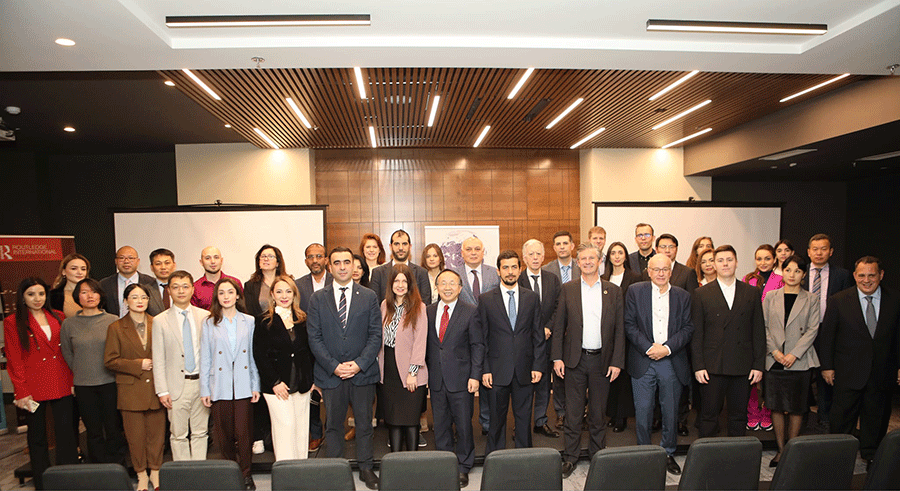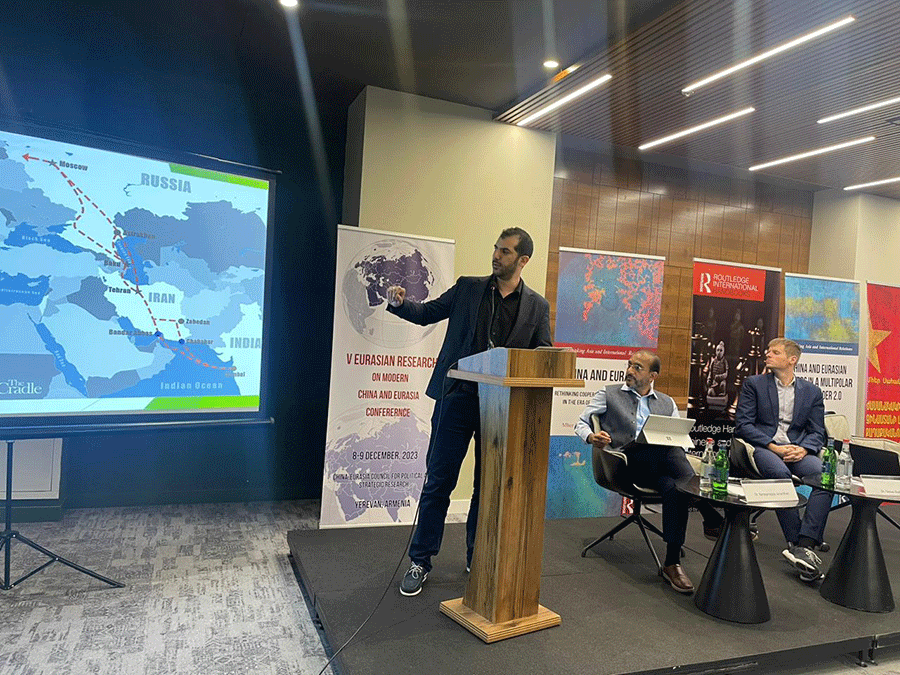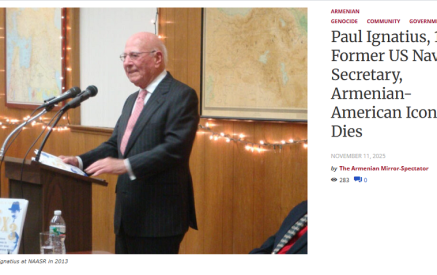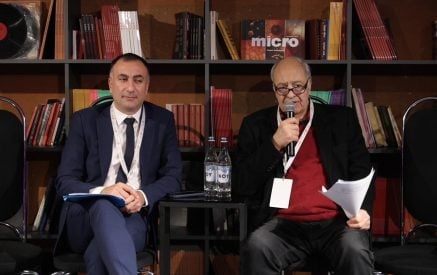by Yeghia Tashjian
The Armenian Weekly
From December 8-9, 2023, the Yerevan-based “China-Eurasian Council for Political and Strategic Research” (CECPSR) foundation headed by Dr. Mher Sahakyan organized its fifth “Eurasian Research on Modern China and Eurasian Conference” with the participation of more than 50 scholars and experts from 18 countries. The presence of ambassadors, diplomats and high officials was greatly noticeable. Opening remarks were made by Dr. Narek Mkrtchyan, Armenia’s Minister of Labour and Social Affairs, and China’s Ambassador to Armenia H.E. Yong Fan, in which both sides stressed cooperation between the countries and showed willingness to further deepen cultural, educational and economic ties.
The conference was divided into a plenary session of seven panels, each addressing a different topic. The panels addressed China’s role in Eurasia and the current world order, the Belt and Road Initiative (BRI), the digital Silk Road and cybersecurity, the ongoing developments in post-Soviet Eurasia, China’s strategy toward the maritime routes, the role of great powers, energy security, regional interconnectivity, China’s role in the Shanghai Cooperation Organization (CSO) and relations with NATO. I was invited to speak in the sixth panel and gave a presentation on Russia’s role in the International North-South Transport Corridor, regional trade interconnectivity and the future of the Middle East. The speakers raised thought-provoking ideas about China’s role in the region, challenges and developments that are reshaping the current world order.
Interesting ideas were raised during this important conference, and I would like to summarize them as follows:
Read also
- The world is living in a multiplex (multiple complex) world system. The rise of new regional powers may create new problems and conflicts, creating the need for new problem-solving mechanisms to be introduced.
- Relations between Russia and China are deepening after the start of the war in Ukraine. Moreover, both sides are cooperating to contain U.S. influence in the region. However, unlike Russia, China seeks to view Europe separately from the U.S. and aims to deepen economic interdependence.
- BRICS (Brazil, Russia, India, China and South Africa) is becoming an important geo-economic and geopolitical bloc, reflected in its expansion. However, the bloc will not be able to replace the U.S. dollar with a new currency in the short run. Instead, it is pushing for de-dollarization by using local currencies for trade. The panelists also argued that there is a managed competition between India and China in the region.
- The Persian Gulf is becoming the epicenter of regional and international competition. China and Russia’s roles are growing in the region and, in light of the war in Ukraine, Russia’s trade with Saudi Arabia and the United Arab Emirates has increased.
- China values stability in Central Asia and the South Caucasus and hopes that the “Middle Corridor” will bring peace to the region.
- Iran’s importance will increase in the South Caucasus when it signs a free trade agreement with the Eurasian Economic Union. Its accession to the Shanghai Cooperation Organization and BRICS will further facilitate the Eurasian integration project. We are seeing growing coordination between China, Russia and Iran on regional matters aiming to contain U.S. interests in the region.
- The Chinese-brokered deal between Iran and Saudi Arabia in March 2023 is being tested and depends on conflict resolution in Yemen. If the conflicting actors cannot find a resolution for the Houthis, the agreement may fail, putting Beijing in a difficult situation.
Most Armenians view China and its foreign policy from the prism of ideology. Some assume that China’s foreign policy toward Turkey and Azerbaijan should be shaped in response to pan-Turkic aspirations towards China’s strategic Xinjiang province. However, this is a mistake. After the 2020 Artsakh War and the new balance of power in the region favoring Turkey and Azerbaijan, Beijing supported Azerbaijan’s narrative on territorial integrity. This support was based on two factors. First, it springs from the “one China policy” vis-à-vis its conflict with Taiwan. From China’s point of view, Azerbaijan’s “restoration” of sovereignty over Artsakh/Nagorno-Karabakh reflects its foreign policy principle. Second, the war in Ukraine has blocked the main route connecting China to Europe via Russia. The “northern route” as it is known directly connects Beijing to Eastern Europe only via Russia.

Participants at the “Eurasian Research on Modern China and Eurasian Conference”
However, currently, this transport route is blocked due to the Western sanctions imposed on Russia. Thus, the Turkish and Azerbaijani-backed “Middle Corridor” connecting Central Asia to the South Caucasus to Turkey and Europe is left as the only operational route bridging China to Europe. From this perspective, we understand Azerbaijan’s growing geo-economic significance to China. While the “Middle Corridor” is complicated, as it transits through many countries with conflicting interests, China is obliged to trade with Europe via this corridor.
Armenia should increase its diplomatic engagement with China and explore ways to attract additional Chinese investments to develop its transport routes and infrastructure. Moreover, intercultural and academic conferences are important to put Armenia back on the political map of Eurasia. Such conferences facilitate the exchange of ideas, promote discussions and debate, and enhance networking between Armenian, regional and international experts.




























































